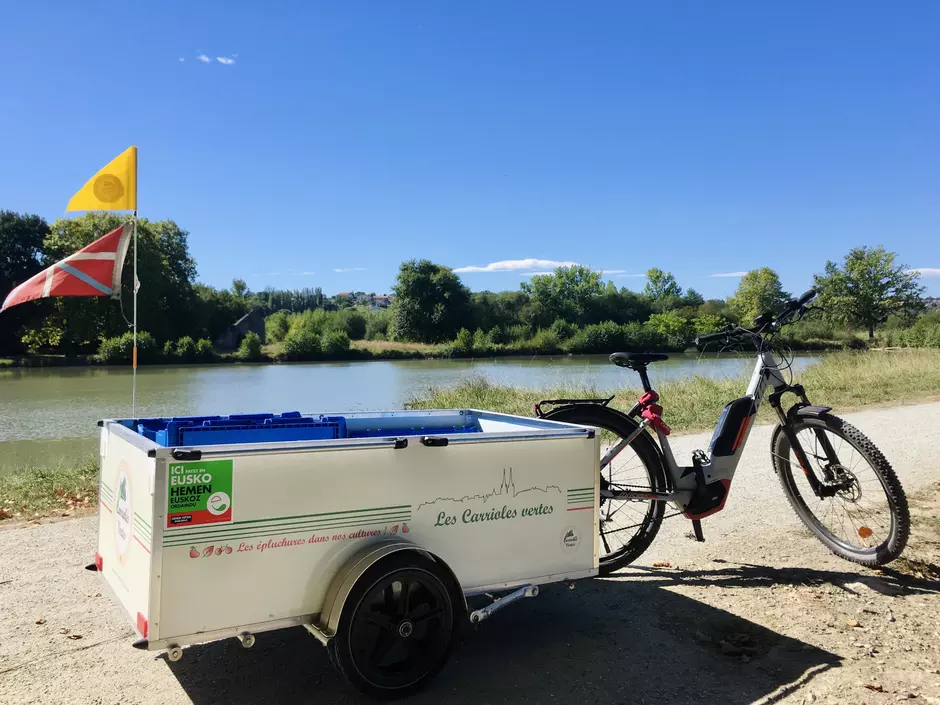
Environment & biodiversity
Location:
Pyrénées-Atlantiques (France)
Sponsor:
Sylvie Recrosio
Grant:
€5,000 at the selection committee meeting on 16 March 2020
Project Owner
Dedicated to composting, Les Carrioles Vertes is a social and solidarity economy organization. It offers services to catering professionals, in particular a service for sorting kitchen bio-waste at source, organizes the sale of compost to private individuals and market gardeners, as well as organizing awareness and training sessions on the challenges of recycling bio-waste.
Why bio-waste? Because it represents a third of the volume in our bins and far more by weight since it is mainly composed of water. However, in most cases, it is not sorted where it is produced. And as soon as it is mixed with other waste, the quality drops and it becomes more difficult to recycle.
Catering professionals: the first link in the chain
To be effective, Les Carrioles Vertes, based in Bayonne, are focusing their project on the region's catering professionals. Bio-waste represents up to 50% of the volume in their bins. And for food shops, there is no channel for the disposing of leaves or fruit and vegetables that are unfit for consumption.
Called "Konopost'avenir", the project being run by the organization is based on a chain of actors. It starts with restaurants and caterers where bio-waste sorting is put in place. Then the non-profit organizes the collection of this waste, by means of bicycles and trailers, in order to recycle it locally by turning it into high-quality compost. Fruit and vegetable growers, market gardeners and the general public are likely customers for this excellent natural soil improver, which is also attracting growing interest.
A loop including the consumer
The ultimate goal is to bring together, in a responsible and committed way, all the players in the sector in order to generate a local circular economy loop for food bio-waste. The support of the Veolia Foundation has allowed bicycles and trailers for collection phase to be bought.
The project is in line both with the FREC (circular economy roadmap) and legislative changes - in particular the requirement for everyone to sort food bio-waste at source and recycle bio-waste from 2023 onwards.

